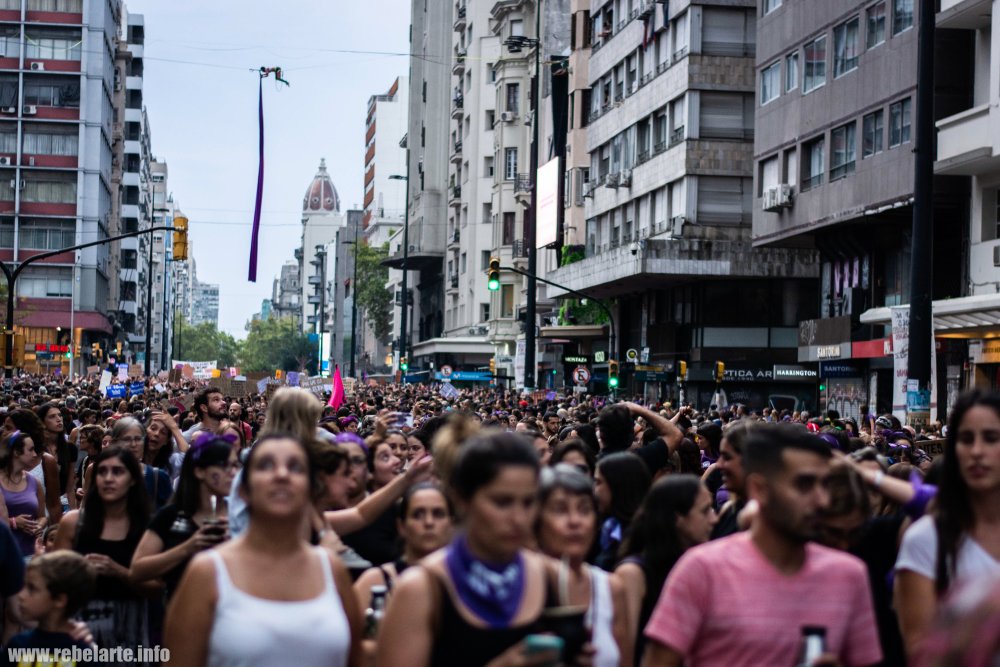by DAWN MARIE PALEY

On March 8, over 350,000 women, gender non-conforming people and children filled the main boulevard and the central square of Montevideo. The march was massive: nearly half of the women who live in the city were on the streets. The overcast sky cleared as the march began, and women dressed in purple and black, some holding signs, others wearing bandanas, brought Uruguay’s capital to a halt.
Over the past years, women in Uruguay have mobilized the largest demonstrations on record since the historic protests that caused the fall of the dictatorship in 1985.
The revival of the feminist movement in Uruguay began in 2014, when the first national gathering of feminisms assembled, marking a break with institutional feminism. Those in attendance agreed that to hold feminist alerts, taking the streets in response to any future killings of women.
Two days later, after receiving word of a feminicide, the first feminist alert was held in Montevideo. This action opened a renewal of feminist activism, as women built popular power against violence.
Women and gender dissidents, speaking and organizing among themselves, have become key protagonists of political and social change. Their actions have grown and multiplied in cities throughout Uruguay since the first women’s strike there in 2017.
In the coastal city of Maldonado, which is connected to the beach resort of Punta del Este, feminists have transformed the local political landscape. “Initially, 8M was totally co-opted by the municipality and the state government,” said Natalia Rodríguez, a member of the Red Feminista de Maldonado. “It was through feminist struggle that began with autonomous feminists that we managed to take back public space, in this case, the plaza.”
In Maldonado, autonomous feminists began gathering by the handful with a megaphone in the plaza. Now, the March 8th activities are the biggest the city sees every year, along with the May 20 silent march, held nationwide to demand justice for victims of disappearance during the dictatorship.
Political changes on a national scale impacted International Women’s Day this year, as police surrounded the march in Montevideo in a display of force. Not far from where hundreds of thousands marched, riot police blocked the entrance of a Catholic church.
Toward Freedom for more